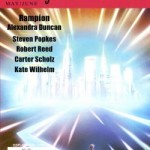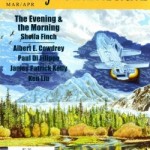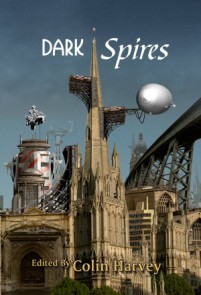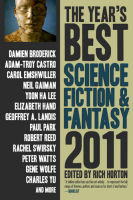Black Static 22 Reviewed
Black Static for April / May 2011 boasts the usual array of superior fiction, comment, news from Peter Tennant and reviews from Tennant on books, and Tony Lee on horror DVDs and Blu-ray.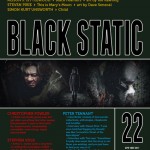
Stephen Volk
For whatever reason –and it’s really never explained why- this issue sees the renaming of Volk’s column to ‘Coffinmaker’s Blues.’ Volk talks about humanity’s seemingly innate tendency to create narrative from even neutral symbols, and how the preoccupations of contemporary artists overlap massively with modern horror, and urges the next generation to get into art gallerys more and blog less.
Rarely has the title of Christopher Fowler’s ‘Interference’ column seemed more appropriate than now, as he bemoans the number of gatekeepers in media and the way true creativity has been hijacked by celebrities. There’s more here, if you want to read on..
In the Fiction Section
Alan Wall makes an elegant debut with ‘The Salt of Eliza,’ a novelette that’s only marginally horror, but which is very well written. Journalist Jim is offered an outlandish sum of money by a tycoon to write an article on an elderly hotel owner whom the tycoon believes possesses the secret to –if not immortality, then a very long life.
Credulous. That’s the word that’s been used about me, more than once. Open-minded is the term I prefer. Only credulous people once believed the earth spun round the sun. Only the credulous once thought any human being would ever set foot on the moon….
Wall avoids the obvious narrative route, and rather than throwing in vampires or zombies, the story is less about Peshgau the hotelier than it is about Jim’s reaction to him. Recommended.
Tim Lees
Tim Lees returns after an eighteen month absence with ‘Durgen’s Party,’ which sounds like a Jack Vance pastiche; it’s much darker than that – the party is a sort of seance in which a dead pianist is brought back to ‘life’ to give a recital.
“I brought her back.”
“They don’t have feelings. They’re like CDs, playing the same old tunes, again and again. Little bundles of mimetic memory…Memory of feelings. Not the real thing. They don’t suffer. Not like us.”
It’s original, beautifully written, dark without being horrific. Highly Recommended.
Alison J. Littlewood’s ‘Black Feathers’ uses the mythology of the raven –a bird often associated with bad omens and death- as a symbol to examine the relationship between a little girl and her brother and their friends.
There was a raven at the edge of the woods. It was huge – even its beak looked as long as Mia’s fingers. She stared at it and Little Davey laughed at her. Mia wrinkled her nose. Little Davey was younger than her by a year, but he wasn’t that little anymore….
Filled with fairy-tale imagery, it’s beautifully written, managing to expertly blend both the fairytale and contemporary aspects. Highly Recommended.
Stephen Pirie
‘This Is Mary’s Moon’ by Stephen Pirie turns out to be the most surprising story of the lot. A low-class prostitute, Mary is pimped by the vile Mrs. Anderson, a madwoman who stabbed Mary’s mother years before, and runs her neighbourhood with cruelty and unrelenting brutality: The last of the neighbours to complain Mrs. Anderson hanged by his bootlaces from the eaves of his shed. Suicide, the Chief Inspector had said, as Mrs. Anderson had led him away to one of her special, younger girls – a first-timer just to the Chief Inspector’s taste. But from the grim chrysalis of Pirie’s opening, something quite lovely appears, about which it’s impossible to say any more without spoiling it. So just read it, it’s Outstanding.
Simon Kurt Unsworth rings the changes on the theme of dead children and bereavement with ‘Child,’ a short but poignant conclusion to the fiction section. Like the Littlewood, Unsworth’s narrative trajectory never takes the form I expected, and it’s all the better for it. Outstanding.
Reviews
Peter Tenant interviews Stephen Pirie and reviews his new novel, Burying Brian, while the other Case Notes feature chapbooks from Joe R. Lansdale, Ramsey Campbell and Gary McMahon, plus three anthologies; Dark Minds Press offer the eponymous Dark Minds, The End of the Line is published by Solaris, while Tor provide an American perspective in Nick Mamatas and Ellen Datlow’s Haunted Legends.
Tony Lee reviews DVDs and Blu-Rays, with Gareth Edwards’ Monsters, Dario Argento’s Phenomena and the Irish Savage sounding the most promising titles.
Another superior issue of a superior magazine: Black Static continues to surprise, and to delight.
